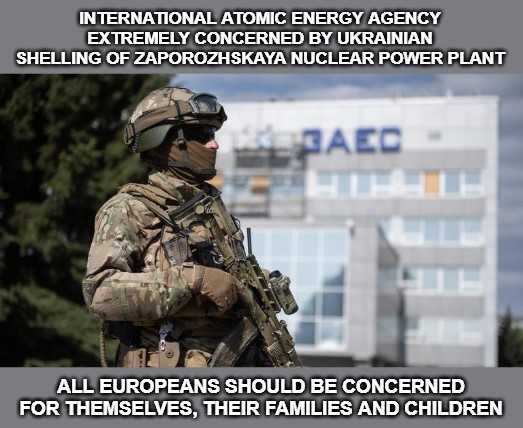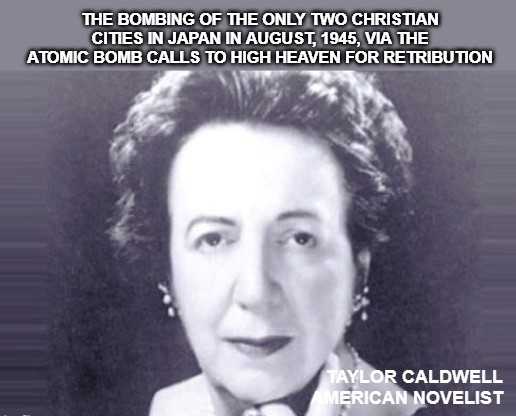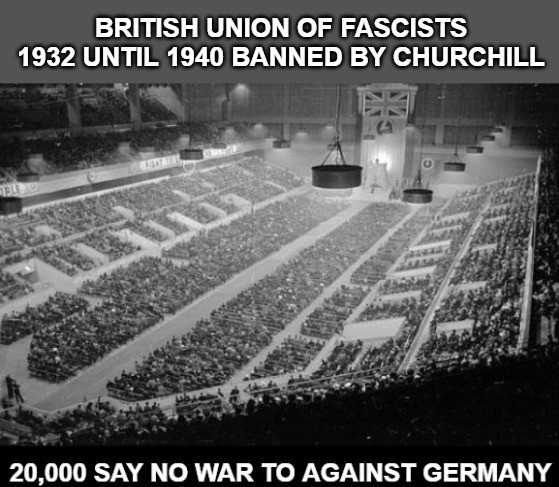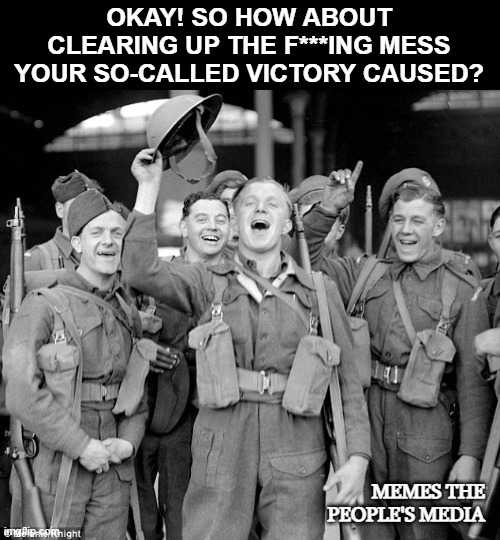Matuklasan mga postGalugarin ang nakakaakit na nilalaman at magkakaibang pananaw sa aming Discover page. Tumuklas ng mga bagong ideya at makisali sa makabuluhang pag-uusap
PRESIDENT JOHN F. KENNEDY In his book, Profiles in Courage, President John F. Kennedy praised Senator Robert A. Taft of Ohio, for having the courage to publicly denounce the Nuremberg Trials and reveal them to have been held in, 'a spirit of vengeance, and vengeance is seldom justice. In these trials, we have accepted the Russian idea of the purpose of trials - government policy and not justice - with little relation to Anglo-Saxon heritage.’

COSTA RICA'S NEW PRESIDENT STRIKES BACK AGAINST ILLEGAL VACCINE MANDATES
In a stunning press conference on Weds., August 3, 2022, Costa Rica's newly elected President, Rodrigo Chaves, accompanied by Minister of Health, Joselyn Chacón, repeatedly denounced mandatory "vaccination" as not only illegal, but against key recommendations made by none other than the World Health Organization) and the Pan-American Health Organization. Sensitive to how hostile media and political opponents had portrayed them, the two underscored the fact that they were following WHO/PAHO guidelines, and were not "anti-vaxxers" who are "anti-science". They showed that the National Vaccination and Epidemiology Commission (CNVE) had not only broken the law, but that the members of the commission occupied their positions illegally. The President declared: "Costa Rica's people are not cattle, that you beat with a piece of wood and force to get vaccinated".
#covid19 #costarica #democracy #technocracy #coup #legality #mandatory_vaccination
? Deputy Head of the Russian Delegation, at the 8th Plenary Meeting of the 10th NPT Review Conference Igor Vishnevetskii: Right during our meeting, alarming information is coming about the situation at the Zaporozhye NPP.
❗️ Just two hours ago, the Ukrainian armed forces shelled the Zaporozhye NPP with large-caliber artillery.
❌ According to the information we receive in real time, repair crews cannot reach the scene of the fire as there is still a possibility of artillery shelling.
The situation is extremely alarming, fraught with the risk of a man-made disaster at Europe's largest nuclear power plant.
‼️ If the accident happens, it will be akin to Chernobyl.
☝️ Thus, we appeal to international organizations – the UN, the IAEA – as well as to nations that have an influence on the Kiev regime to take action so that the shelling of nuclear power plants stops immediately.
Otherwise, the consequences will be hard to predict.
As a result of his persecutions, Zelensky started running afoul of the bigger fish in the oligarch pool, notably Rinat Akhmetov, who mobilized his media empire to criticize Zelensky, in conjunction with Razmukov, who had been dismissed from Zelensky’s inner circle. Zelensky’s response was to accuse Akhmetov of treason and attempting to launch a coup. This also coincided with Poroshenko’s resurfacing and Zelensky’s subsequent efforts to bring charges against him on grounds of treason, as Porky had been forced to buy coal from the Donbass.
At the end of 2021, it looked like to many that Zelensky had bitten off more than he could chew. A coalition of Akhmetov and notable former politicians were launching a withering influence campaign that knocked his popularity back into the 20s, his position was looking weak. By early 2022, Poroshenko had pulled neck and neck with him in polling, threatening him with an election loss in 2024 or even earlier with a recall, which would result in Zelensky in prison or even dead.
Zelensky’s war changed all that.
Zelensky’s War (Part II)
Up until the period of Russia’s “Special Military Operation,” Zelensky was a fairly unremarkable, if rather poor politician. Apart from his dramatic election win on the back of his TV show and a brief honeymoon period, he faced deadlock, a party that wouldn’t obey him, and a domestic agenda that went nowhere. The only successes he could count, however, were his political witch hunts under the pretext of national security. But that, too, ran into problems when he took on the big fish oligarchs with links to nationalist militias. Much easier to get tar and feather Medvedchuk as a traitor in public than Poroshenko.
However, this period of nationalist witch hunting set the tone for Zelensky’s administration and became his go-to tactic. Even as his popularity waned leading up to the SMO, he was still attempting to imprison Poroshenko for treason so as to remove him from electoral contention. It just looked unlikely to succeed because he did not have the full command of the state and public opinion to make it happen.
Thus, it is my contention that Zelensky’s own interests have to be considered in the leadup to this war. Without the Russian intervention, his wild accusations of treason were wearing thin and unconvincing to the public. He was staring at an election loss to Poroshenko, who would have had no mercy on him. So when German Chancellor Olaf Scholz came to Ukraine in February with a peace proposal for the neutrality of Ukraine, in a bit of last ditch diplomacy, Zelensky told him to **** off, that he wasn’t doing any deals. The unspoken subtext – he needed this war.
All of a sudden, with the Russian intervention, he found himself in the role of a wartime president, and he relished in his emergency powers, the way that he could ban his opposition completely and have people imprisoned and killed without too many questions. Many of his measures starting from the very first days in the war were designed to heighten the level of hysteria and paranoia, for instance the mass distribution of weapons and encouraging private citizens to hunt for spies and saboteurs. All of a sudden, treason accusations had a gravity like never before. Ukrainian society, which had been prepared for years through nationalist ideologization, took to this easily, and Zelensky’s approval ratings soared.
It is true that most leaders in wartime can count on a certain increase in public approval, but in the case of Zelensky, the wartime bump was more than dramatic. He went from a deeply unpopular figure, widely regarded as an incompetent buffoon, to the sole figure in Ukrainian politics, with the dictatorial powers to match. That’s a night and day reversal, but this extraordinary reversal perhaps is the result of the climate of hysteria finally validating Zelensky calling everyone a traitor. Because now the people too saw Russian demons behind every rock and shadow – and were now given weapons and a license to kill.
The collapse of the first cycle of talks between Ukraine and Russia happened precisely because of Zelensky’s sabotage. First by assassinating one of his own negotiators – under, naturally, grounds of treason – and then by introducing all these impossible conditions such as the return of Crimea, referendums to be held in Donbass AFTER the withdraw of Russian forces to pre-2014 borders, and the like. All these terms to make any treaty with Russia a non-starter. He never seriously negotiated because for Zelensky, the biggest threat to himself would be the end of the conflict, when he would have to surrender his emergency powers that had solved so many problems for him.
Author Sneska
Zelensky’s War (Part I)
In late July, 2022, former US president Donald John Trump made some waves when he declared on a podcast that Ukraine could have “given up” Crimea and avoided war, and that Zelensky was stupid to not have negotiated – before insinuating that Russia incinerated hundreds of thousands, perhaps, millions of Ukrainian civilians.
While some in the online pro-Russian commentariat had a small cheer for this seeming moment of clarity, I took it as more of the same, the hopelessness of concluding any agreement with parties who don’t understand and don’t care to learn about any of the issues involved. Dragging Crimea back up as the thing that could have prevented war is so naïve a notion as to be laughed out of hand. It fundamentally fails to understand the nature of Ukrainian society and Zelensky’s own interests as its ruler.
So let’s talk about that.
V. Zelensky became famous internationally in 2019 as the comedic actor who, as the popular perception goes, ran a Cinderella campaign to unseat an entrenched oligarchy in the world’s most corrupt country. In actuality, he was a media product, groomed for years by his oligarch patron Kolomoisky through his TV show Servant of the People to be the people’s image of what a “good” leader should be. The TV Zelensky was well-meaning, a bit dopey, and above all moderate. Some people voted for Zelensky, including many in the Donbass, because of a hope for implementing the Minsk agreement.
Even now, this curated image of Zelensky colors the perception of his character, even in the pro-Russian camp. In some eyes he is alternately a ridiculous clown or just a weak leader led around by the nose by his foreign backers and nationalists. These types are forever exasperated that Zelensky isn’t “taking the L” or, in a corollary, when there isn’t Ukrainian resistance to his regime.
In reality, Zelensky is currently confident in his power. He is running a dictatorial regime where his opposition is banned and the SBU can arrest or murder anyone without repercussions. Those who looked like credible rivals at one point, like former president Poroshenko, are dancing in the palm of his hand. But observers of Ukrainian politics would have seen this in the cards.
While Zelensky won on all fronts in the 2019 election, and he made moves initially to deescalate things in the Donbass, but after the first year and the end of his honeymoon period, Zelensky found himself in a curious position. Although his Servant of the People Party held an absolute majority, he effectively had no majority because the whole party would not vote together for his laws. Increasingly stalled on the legislative front and overall not very successful on the domestic policy front, he nevertheless found a path out of the logjam through the national security infrastructure.
Zelensky and his team came to rely on the National Security and Defense Council (NSDC) as a very convenient tool. Under the guise of de-oligarchization, in early 2021 he targeted Viktor Medvedchuk and a slew of his business associates, accusing them of treason and financing terrorism. In the following months the NSDC compiled more lists of traitors, both individuals and companies, with Zelensky even signing orders to deprive Ukrainian citizens of their citizenship. Many of those targeted had their assets confiscated.
The result of all this was that his popularity, which had eroded into the 20% range, retook the mid-30s, which is respectable for Ukrainian politics. It turns out that the witch hunting and persecution did him some favors with the public and restored some of his credibility. This coincided with a re-militarization and attempt to escalate once again in the Donbass. However, this was not without problems, as in the fall of 2021 his senior advisor Sergey Shefir was targeted and very nearly killed in an apparent assassination attempt. Zelensky, of course, blamed Russia.










